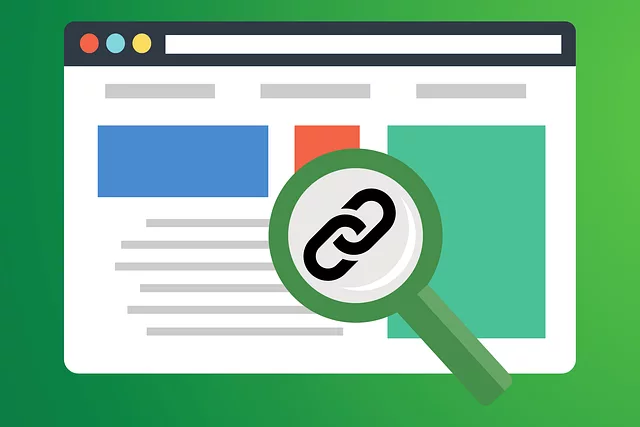Understanding core SEO concepts is vital for success in digital marketing, particularly within Professional SEO Programs. This involves grasping search engine operations, keyword importance, and user experience. Strategic content optimization, on-page SEO (keyword research, meta tags), off-page strategies (social media, backlinks), technical SEO (site structure, speed optimization), local SEO (Google My Business), and advanced tools (Google Analytics, SEMrush) are key components. Choosing the right Professional SEO Programs based on skill level and goals ensures a strong foundation for a successful SEO career.
“New to the world of digital marketing? Dive into our comprehensive ‘SEO University for Beginners’ guide. This course covers everything from understanding SEO fundamentals and the role of keywords, to on-page and off-page optimization strategies. Learn technical SEO best practices, master local search targeting, and explore advanced tools for performance tracking. Additionally, discover top professional SEO programs designed to empower your journey in this dynamic field.”
Understanding SEO Fundamentals: Unlocking the Basics

Understanding the fundamentals of Search Engine Optimization (SEO) is the first step towards excelling in this digital marketing field. SEO Fundamentals involve grasping key concepts like how search engines crawl and index websites, the role of keywords in ranking algorithms, and the importance of user experience. Knowing these basics is crucial for crafting effective strategies within Professional SEO Programs.
By familiarizing yourself with these fundamentals, you’ll be able to navigate the complex landscape of SEO more confidently. This knowledge forms a solid foundation for optimizing content, structuring websites, and implementing techniques that enhance search engine visibility, ultimately driving organic traffic and improving online presence.
The Role of Keywords in Search Engine Optimization

In the realm of search engine optimization (SEO), understanding the power of keywords is akin to unlocking a professional SEO program’s full potential. Keywords act as the bridge between what users search for and the relevant content that satisfies their queries. When crafting digital content, incorporating strategic keywords ensures it resonates with both search engines and target audiences. These words or phrases are the compass that guides internet users to valuable information, making them essential for any successful SEO strategy.
The role of keywords extends beyond simple relevance; they also influence the ranking and visibility of websites in search engine results pages (SERPs). Search engines like Google use algorithms to analyze content, and keywords play a pivotal role in these calculations. By optimizing content with relevant keywords, beginners in SEO can enhance their online presence, attract organic traffic, and compete effectively against peers in their industry. This foundational step is crucial for any aspiring professional SEO specialist.
On-Page SEO Strategies: Optimizing Your Website Content

Starting with on-page SEO strategies, optimizing your website content is crucial for any aspiring professional in SEO programs. This involves understanding and implementing best practices for keyword research, meta tag optimization, header tags, and image alt text. By strategically integrating relevant keywords into your content, you enhance its visibility and relevance to search engines.
Effective on-page SEO also demands a focus on quality over quantity. Creating valuable, engaging content that satisfies user intent not only improves the user experience but signals to search engines that your site is a reliable source of information. Regularly updating your content with fresh insights and trends ensures it remains relevant in the competitive digital landscape.
Off-Page SEO Techniques: Building Authority and Backlinks

Off-page SEO refers to strategies that happen outside of your website, focusing on building authority and gaining backlinks. This is a crucial aspect of Professional SEO Programs as it influences how search engines perceive your site’s relevance and trustworthiness. One key technique involves engaging in social media marketing, where you can promote your content to drive traffic and encourage shares, which indirectly signal to search engines that your site is valuable and active.
Building relationships with influential figures and websites in your industry is another effective off-page SEO technique. Guest blogging on reputable sites, contributing to online forums, and engaging in industry discussions can all help establish you as an authority. Moreover, these interactions often lead to natural backlinks, which are seen as votes of confidence by search engines, boosting your site’s ranking over time.
Technical SEO: Ensuring Your Website is Search-Engine Friendly

Technical SEO focuses on optimizing your website’s structure and code to make it more search-engine friendly. This involves ensuring that search engine crawlers can easily access and understand all pages on your site. Key aspects include improving site speed, creating XML sitemaps, implementing structured data markup, and fixing broken links or redirects. These optimizations not only enhance user experience but also signal to search engines that your website is reliable and valuable, which can significantly impact your rankings.
Professional SEO programs often include in-depth training on technical SEO practices. By learning how to implement these strategies effectively, beginners can lay a strong foundation for their online presence. With the right knowledge, they can ensure their websites are optimized for search engines, driving more organic traffic and improving overall performance in the digital landscape.
Local SEO: Targeting Your Nearby Audience

Local SEO focuses on helping businesses attract nearby customers by optimizing their online presence for local search results. It’s a crucial aspect of any successful Professional SEO Programs, as it allows businesses to connect with their target audience in real-world locations. By claiming and optimizing local business listings, such as Google My Business, businesses can ensure their information is accurate and consistent across the web. This includes updating details like operating hours, contact information, and adding high-quality images and videos.
Additionally, incorporating location-specific keywords into your website’s content and obtaining reviews from satisfied customers can significantly boost local SEO efforts. Local search algorithms prioritize providing relevant, up-to-date results to users searching for services or products in their vicinity. So, by implementing these strategies, businesses can increase their visibility on local maps, improve click-through rates, and ultimately drive more foot traffic through effective Local SEO tactics.
Advanced SEO Tools and Analytics for Performance Tracking

As a beginner in SEO, it’s crucial to learn how to leverage advanced tools and analytics for performance tracking. Professional SEO programs offer a suite of sophisticated tools that go beyond basic keyword research and link building. These tools include Google Analytics, Search Console, SEMrush, Ahrefs, and Moz, among others, each providing valuable insights into website traffic, user behavior, backlink profiles, and more. By integrating these tools into your strategy, you gain actionable data to optimize content, refine search engine rankings, and ultimately drive better results.
Advanced analytics allow SEO practitioners to navigate the complex digital landscape with precision. You can track keyword rankings, analyze competitor strategies, identify broken links, and even predict future trends. These professional SEO programs offer detailed reporting and visualization capabilities, making it easier to interpret data and make informed decisions. With access to such tools, beginners can enhance their skills, stay ahead of algorithm updates, and contribute significantly to their organization’s online visibility and success.
Professional SEO Programs: Choosing the Right Course for Your Journey

When exploring the world of search engine optimization (SEO), one of the most important steps is selecting the right Professional SEO Programs. The market offers a myriad of options, each catering to different learning styles and career goals. Whether you’re a complete novice or have some basic knowledge, there’s a course designed to help you thrive in this dynamic field. Look for programs that provide a comprehensive curriculum covering on-page and off-page optimization techniques, keyword research, link building strategies, and analytics tools.
Consider your current skill level and future aspirations when making your choice. Some courses focus on foundational SEO concepts, ideal for beginners seeking a solid understanding of the fundamentals. Others delve deeper into advanced topics like technical SEO, content optimization, and local search strategies. By aligning your learning journey with your professional goals, you can maximize the value of your Professional SEO Programs and set yourself up for success in this ever-evolving digital landscape.



